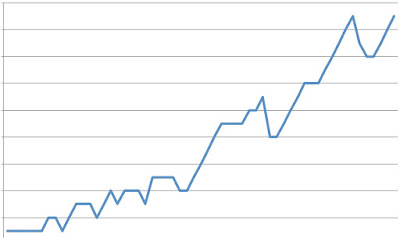The first book I read when I started at St. John's College was Plato's Phaedrus. It is a dialogue between Socrates and Phaedrus in which - among many, many other things - Phaedrus is deeply concerned about this new things the kids are doing - reading books. Would people remember things if they could just write it down? Would people really understand ideas if they couldn't query the speaker? Written stuff seemed only fit to translate lightweight stuff, amusements.
There is nothing new under the sun.
It is an argument that has replayed itself so many times since, particularly in our own time. I remember a film in which the same argument was made regarding films vs. television. But in the Victorian era some worried about the deleterious effect of novels. Now some version of the Phaedrus is replayed almost weekly about some new technology or social media tool. I had my own little bout of it with GPS.
What we are afraid of is that somehow we are losing our essence, that we will stop being human. I grant that, superficially, being human seems to be under threat by modernity. But we are a bit more robust than that, we have something ineffable (literally that which cannot be f'd.)
Presentism & Policy
I may toy with philosophy, but politics and public policy are my bread and butter. I see the same phenomenon in politics as presentism. Some of this is journalists looking for a story, some version of "this changes everything." Howard Dean's online fundraising has fundamentally changed how politics works and indicates massive coming realignments. Sure, maybe. It is mostly choosing a choice detail, making some massive assumptions and extrapolating wildly. It is chasing the shadows on the walls of the cave (another fine Platonic dialogue.)
 |
| Presentism: In the midst of a dip, it can seem like the world is coming to an end |
Wages for unskilled labor have collapsed in the past few decades. This is bad and is making lots of people miserable. Multi-pronged efforts are needed to address this. But it does not mean our system has failed. 150 years ago these unskilled workers would probably have been doing backbreaking labor at subsistence agriculture. While there were virtues to that life, let's not romanticize it. Around that time, these laborers were moving into factory work - hard, dirty, impoverishing. Over the next several decades factory work improved, but at first it was derided, scorned as lesser compared to the honest decent life of farming. The gains in productivity and living standards in the past century have been nothing short of astounding. The fact that we are in a dip (and that dip feels pretty huge) doesn't mean our system is broken.
On another, completely different front, the same issue applies to political polarization. We often hear how Washington is broken and things are more partisan than they've ever been. But, compared to what? Our political history has featured some pretty nasty rhetoric, periods of remarkable divisiveness and gridlock - oh, and a huge continent-spanning civil war. Maybe our perspective is skewed because of the post-World War II period was one of relative comity.
This phenomenon applies to many, many issues. In foreign policy when I hear how dangerous the world is, I smirk - not compared to the height of the Cold War - to say nothing of WWII.
Limits of Presentism
Presentism is useful, it helps put things in perspective. It has its limits. First, sometimes there is a big change. It becomes all too easy to miss when there is a vast trend, a major shift. Generally, the safe bet is the t+1 will look a whole lot like t, which looked like t-1...
But that isn't the biggest problem.
Saying that progress in living standards over the past 150 years has been tremendous is small comfort to the laid-off worker with few prospects. For Syrians the world IS a more dangerous place than it was in World War II or during the Cold War. Telling African-Americans that the civil rights situation has improved dramatically in the last several decades is no comfort (and appears false) in the wake of seeming police impunity.
The way someone feels about their situation and the world cannot be argued away. It has to be acknowledged. That sounds easy. But it isn't.
No comments:
Post a Comment